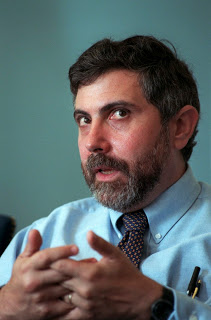– Krugman, Who Is Paid $25,000/Month To Study Inequality, Says “Nobody Wants Us To Become Cuba” (ZeroHedge, April 17, 2014):
When it comes to Krugman’s views on any particular topic, he may be right and he may be wrong, but whatever his opinion he always has a much to say about it (even if the factual backing is of secondary importance or outright missing). Today, his chosen topic is inequality, and in an interview with Bloomberg’s Tom Keene, shown and transcribed below, he certainly says much, encapsulated perhaps by the following gem:
“There’s zero evidence that the kind of extreme inequality that we have is good for economic growth. In fact, there’s a lot of evidence that it is actually bad for economic growth. Nobody wants us to become Cuba. The question is, do we have to have levels of inequality that are getting close to being the highest levels ever anywhere. We’re really starting to set new records here. Is that a good thing for anybody? If you look at our own history, it’s not true. The fact of the matter is since inequality began soaring around 1980, the bottom half of America has been pretty much left behind. It has not been a rising tide that raised all boats.”
Ah yes, inequality, the same inequality that the Fed – Krugman’s favorite monetary stimulus machine, after all it was none other than Krugman who suggested that in order to offset the bursting of the tech bubble the Fed should create the housing bubble – has been creating at an unprecedented pace since it launched QE. Just recall: “The “Massive Gift” That Keeps On Giving: How QE Boosted Inequality To Levels Surpassing The Great Depression.”
So while Krugman is right in lamenting the record surge in class divide between the 1% haves and the 99% have nots, you certainly won’t find him touching with a ten foot pole the root cause of America’s current surge in inequality.
And, tangentially, another thing you won’t find him touching, is yesterday’s revelation by Gawker that the Nobel laureate is the proud recipient of $25,000 per month from CUNY to… study inequality.
…

